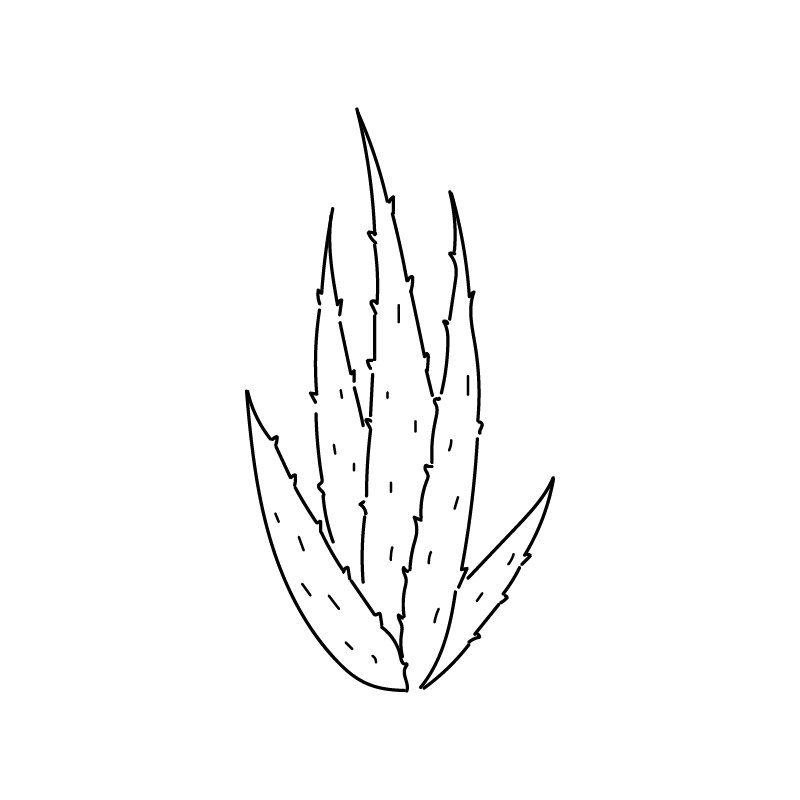BRAIN CALM-PLEX
Lion’s Mane Supplement’s BRAIN CALM-PLEX is an advanced anti-anxiety supplement that supports a calm and relaxed mind. Formulated using the latest scientific research, BRAIN CALM-PLEX is a powerful combination of high-quality ingredients that promote reduced anxiety, healthy sleep cycles (circadian rhythm), mental clarity, and improved mood.
With its unique blend, BRAIN CALM-PLEX helps to alleviate mental fatigue and promotes relaxation, allowing you to feel more at ease and focused throughout the day. Our supplement is third-party independently tested for heavy metals and impurities, ensuring the highest quality product for our customers. Plus, it's made in the USA, GMP certified, and produced in an FDA-registered facility.
With our world-class standards, only 1% of supplements on the market can match the quality of BRAIN CALM-PLEX. Say goodbye to anxiety and stress with BRAIN CALM-PLEX, the premium anti-anxiety supplement.
Container Size 2.3 x 3.8 in. Product Weight 5oz. Serving Size: 2 Veggie Capsules. Servings Per Container: 30
Ingredients:
Vitamin B1 12 mg, Vitamin B212 mg, Vitamin B516 mg, Vitamin B68 mg, Niacin 28 mg, Biotin 300 mcg, Calcium Carbonate 25 mg, Magnesium Oxide 25 mg, Zinc Oxide 25 mg, Potassium Gluconate 25 mg.
Proprietary Blend 830 mg. Rhodiola Ext Sal 1% HPLC, Lutein 5%, Ashwagandha, Chamomile, GABA, Lemon Balm, Skullcap, Hawthorn, Bacopa (Brahmi), Magnolia, Passion Flower, Valerian, L-Theanine, OatStraw (Avena Sativa) 20:1, Mucuna Pruriens 14% HPLC, StJohn’s Wort, Hops, Grionia Seed Ext 5-HTP.
Made In The USA / Manufactured At FDA Registered and GMP Certified Facilities / 3rd Party Tested For Purity, Potency, & Quality.
✓ Gluten Free ✓ All Natural ✓ Non-GMO ✓ Zero Added Sugar ✓ VeganFriendly ✓ Vegetarian ✓ Organic ✓ Corn Free ✓ Lactose-Free
✓ Manufactured at NSF Certified Facility
Lion’s Mane Supplement’s BRAIN CALM-PLEX is an advanced anti-anxiety supplement that supports a calm and relaxed mind. Formulated using the latest scientific research, BRAIN CALM-PLEX is a powerful combination of high-quality ingredients that promote reduced anxiety, healthy sleep cycles (circadian rhythm), mental clarity, and improved mood.
With its unique blend, BRAIN CALM-PLEX helps to alleviate mental fatigue and promotes relaxation, allowing you to feel more at ease and focused throughout the day. Our supplement is third-party independently tested for heavy metals and impurities, ensuring the highest quality product for our customers. Plus, it's made in the USA, GMP certified, and produced in an FDA-registered facility.
With our world-class standards, only 1% of supplements on the market can match the quality of BRAIN CALM-PLEX. Say goodbye to anxiety and stress with BRAIN CALM-PLEX, the premium anti-anxiety supplement.
Container Size 2.3 x 3.8 in. Product Weight 5oz. Serving Size: 2 Veggie Capsules. Servings Per Container: 30
Ingredients:
Vitamin B1 12 mg, Vitamin B212 mg, Vitamin B516 mg, Vitamin B68 mg, Niacin 28 mg, Biotin 300 mcg, Calcium Carbonate 25 mg, Magnesium Oxide 25 mg, Zinc Oxide 25 mg, Potassium Gluconate 25 mg.
Proprietary Blend 830 mg. Rhodiola Ext Sal 1% HPLC, Lutein 5%, Ashwagandha, Chamomile, GABA, Lemon Balm, Skullcap, Hawthorn, Bacopa (Brahmi), Magnolia, Passion Flower, Valerian, L-Theanine, OatStraw (Avena Sativa) 20:1, Mucuna Pruriens 14% HPLC, StJohn’s Wort, Hops, Grionia Seed Ext 5-HTP.
Made In The USA / Manufactured At FDA Registered and GMP Certified Facilities / 3rd Party Tested For Purity, Potency, & Quality.
✓ Gluten Free ✓ All Natural ✓ Non-GMO ✓ Zero Added Sugar ✓ VeganFriendly ✓ Vegetarian ✓ Organic ✓ Corn Free ✓ Lactose-Free
✓ Manufactured at NSF Certified Facility
Lion’s Mane Supplement’s BRAIN CALM-PLEX is an advanced anti-anxiety supplement that supports a calm and relaxed mind. Formulated using the latest scientific research, BRAIN CALM-PLEX is a powerful combination of high-quality ingredients that promote reduced anxiety, healthy sleep cycles (circadian rhythm), mental clarity, and improved mood.
With its unique blend, BRAIN CALM-PLEX helps to alleviate mental fatigue and promotes relaxation, allowing you to feel more at ease and focused throughout the day. Our supplement is third-party independently tested for heavy metals and impurities, ensuring the highest quality product for our customers. Plus, it's made in the USA, GMP certified, and produced in an FDA-registered facility.
With our world-class standards, only 1% of supplements on the market can match the quality of BRAIN CALM-PLEX. Say goodbye to anxiety and stress with BRAIN CALM-PLEX, the premium anti-anxiety supplement.
Container Size 2.3 x 3.8 in. Product Weight 5oz. Serving Size: 2 Veggie Capsules. Servings Per Container: 30
Ingredients:
Vitamin B1 12 mg, Vitamin B212 mg, Vitamin B516 mg, Vitamin B68 mg, Niacin 28 mg, Biotin 300 mcg, Calcium Carbonate 25 mg, Magnesium Oxide 25 mg, Zinc Oxide 25 mg, Potassium Gluconate 25 mg.
Proprietary Blend 830 mg. Rhodiola Ext Sal 1% HPLC, Lutein 5%, Ashwagandha, Chamomile, GABA, Lemon Balm, Skullcap, Hawthorn, Bacopa (Brahmi), Magnolia, Passion Flower, Valerian, L-Theanine, OatStraw (Avena Sativa) 20:1, Mucuna Pruriens 14% HPLC, StJohn’s Wort, Hops, Grionia Seed Ext 5-HTP.
Made In The USA / Manufactured At FDA Registered and GMP Certified Facilities / 3rd Party Tested For Purity, Potency, & Quality.
✓ Gluten Free ✓ All Natural ✓ Non-GMO ✓ Zero Added Sugar ✓ VeganFriendly ✓ Vegetarian ✓ Organic ✓ Corn Free ✓ Lactose-Free
✓ Manufactured at NSF Certified Facility
Key Ingredients
Vitamins B1, B2, B3, B5, B5, B6
Niacin, Biotin, Magnesium, Calcium, Zinc, Potassium
Rhodiola, Lutein, Ashwagandha, GABA, Skullcap, Magnolia, Passion Flower, Valerian
L-Theanine, OatStraw, Mucuna Pruriens, StJohn’s Wort, Hops, Grionia Seed Ext 5-HTP
Benefits Of Each Ingredient
Calcium Carbonate
Supports bone health, muscle function, and cardiovascular health (36,37).
Regulates processes of bone resorption, mineralization, and fracture repair (36,37).
Increases the effect of physical exercise on bone mineral acquisition in the period preceding puberty (36,37).
Prevents the development of preeclampsia (36,37).
Vitamin B1
Supports aerobic energy metabolism (oxidative phosphorylation), cell growth, optimal neuronal conduction (nerve impulses), and cardiovascular health (94).
Supports cardiovascular function and aids as a neuroprotective agent in individuals with vitamin B-1 deficiencies (94, 95).
Vitamin B2
Supports conversion and activation of other B vitamins, red blood cell production and serves as a cofactor for both glucose and fat metabolism (energy production) (92,93).
Vitamin B5
Supports energy production, cell growth, cell repair, cognitive function, increased hippocampal volume (memory), and optimized bioenergetics (burning of carbohydrates, fat, and protein) (96).
Vitamin B6
Serves as a cofactor in more than 150 enzymatic reactions associated in blood sugar regulation, immunity, cardiovascular function, neuronal health, metabolic, and digestive health (38, 40).
Reduces plasma glucose (blood sugar levels) via by inhibiting the activity of small-intestinal α-glucosidases (enzymes associated with glucose metabolism) (39).
Functions as an antioxidant by counteracting the formation of reactive oxygen species (inflammatory markers) and advanced glycation end-products (38,40).
May support blood sugar regulation in women with gestational diabetes (40).
Cofactor for enzymes involved in DNA metabolism (40).
Vitamin B3 (Niacin)
Major B vitamin that supports cardiovascular health by inhibiting hepatic(liver) triglyceride synthesis, reducing very low-density lipoprotein (VLDL) secretion, and increasing HDL plasma concentrations (9).
Reduces conversion of VLDL into LDL proteins and serum lipoprotein concentrations in plasma (blood) (9).
Vital for regulation of gene expression, cell cycle progression, and DNA repair, and cell death (9).
Supports healthy inflammatory response via antioxidant and anti-apoptotic (prevention of cell death) properties (9).
Prevents pathologies(diseases) such as Pellagra and reduces prevalence of nervous anorexia, cancer, and crohn's disease (10, 11).
Supports sensitization of tumors to radiation via apoptosis (cell death) cascade of tumor mass and improves oxygen delivery to malignant tissues (cancer cells) (12).
Supports cognitive health by reducing age-related decline of NAD+, increasing quinolinic acid and reducing neuroinflammation (9).
Increased niacin associated NAD+ levels have been shown to increase neurotransmission, learning and memory (9).
Niacin reduces the prevalence of neurodegenerative pathologies by preventing mitochondrial dysfunction (9).
Biotin
Supports conversion of food into cellular energy, hair health, skin health, and cognitive function (213,214).
Enhances glucose breakdown into skeletal muscle tissue (213,214).
Potassium
Supports reduced blood pressure in hypertensive patients and improves hydration in individuals with low potassium levels (262).
Magnesium
Supports optimal nerve function, muscle contractions, cardiovascular, bone health, and decreased anxiety (90,91).
Supports biological reactions such as ATP fueled reactions and pancreatic insulin secretion (90,91).
Supports reduction systolic blood pressure, fasting glucose, triglycerides, and healthy HDL levels (90,91).
Reduces peripheral cortisol levels in the CNS and supports relaxation and decreased anxiety (90,91).
Zinc
Supports immune function, skin health, cognitive function, and vision (172,173).
Supports stimulation of the innate and adaptive immune system (172,173).
Supports the activation of lymphocytes and activation of innate and T cell mediated immunity (172,173).
Supports cognitive function by modulation of neuronal signaling in areas of the brain associated with memory and learning (hippocampus) (172,173).
Rhodiola
Botanical adaptogen which has been confirmed to possess protective effects of inflammatory injury for many diseases, including cardiovascular diseases, neurodegenerative diseases, diabetes, sepsis, and cancer.(13).
Lutein
Carotenoid that supports vision health, immune health, cardiovascular health, and combats diabetic retinopathy (155,156).
Supports increased lutein concentration in the macula and exhibits various features such as anti-inflammatory, anti-oxidative, and blue light-filtering effects (155,156).
Supports visual health via increased lutein concentration in the macular layer of retina, reduced susceptibility to age related macular disease, reduced prevalence of cataracts, and improved plasma level of lutein and retinal macular pigment level (155,156).
Chamomile
Supports healthy sleep, relaxation, reduced anxiety, and antioxidant support (251,252,253).
Supports antioxidant function due to high levels of quercetin (flavonoid antioxidant) (251,252,253).
Supports sleep via increases in parasympathetic (relaxation mode) activity, increased benzodiazepine-like hypnotic activity (sleep inducer), and attachment to GABA receptors (251,252,253).
Lemon Balm
Supports healthy sleep, relaxation, reduced anxiety, and antioxidant support (254,255).
Supports antioxidant function via ability to scavenge free radicals, reduce oxidative stress, increased glutathione production (master antioxidant) combat DNA damage (254,225).
Supports relaxed sleep via enhanced REM cycles reduced stress at bedtime (254,225).
Passion Flower
Reduces stress, enhances sleep, and improved mood (248)
Enhances positive mood and sleep via regulated gamma‐aminobutyric acid receptor A (GABAA) activity (receptor which controls sleep) (248).
Hawthorn Berry
Supports cardiovascular health and combats metabolic syndrome (165).
Supports cardiovascular health via reduced atherosclerotic lesion areas, reduced cholesterol synthesis (acyl-coA-cholesterol acyltransferase enzyme), reduced very low-density lipoproteins (VLDL), and inhibited platelet aggregation (165).
Munica Pruriens
Supports blood sugar regulation, sexual enhancement, aids an anti-inflammatory agent, combats neurodegenerative disease, and supports antimicrobial activity (128).
Supports anti-aging, rheumatoid, arthritis, diabetes, male infertility, and nervous disorders (128).
Supports male sexual health via increased sperm motility and increased free testosterone (128).
Combats neurodegenerative disease via stimulation of dopaminergic neurons (129).
Supports blood sugar health via reduced blood glucose levels, improved insulin transport, and lowered H1AC levels (130).
St. John’s Wort
Combats depression and supports positive mood (249,250).
GABA
Supports relaxation, positive mood, increased memory, reduced anxiety, blood sugar regulation, and increased growth hormone production (102).
Skullcap
Supports calming mood and relaxation, anti-inflammatory and antioxidant effects, which may help in the prevention and treatment of certain chronic diseases. (1000)
L-Theanine
Unique non-protein amino acid found in green tea (Camellia sinensis) (53).
Supports mood, mental clarity, and cognitive health, memory, and is a natural anti-depressant/neuroprotective agent (53).
Aids as an antidepressant due to partial antagonism for the N-methyl-D-aspartate receptor manifesting its cognitive optimizing effects (53).
Reduces the neuropsychiatric side effects of chronic adolescent THC exposure (54).
Ashwagandha
Supports cardiovascular, hormonal, immune, healthy weight loss, mood, and optimized sleep (82,83).
Reduces stress hormone cortisol resulting in improved body composition, sex hormone profile, and mood (82,83).
Improves exercise performance via increased V02 max, muscular endurance, muscle hypertrophy (muscle growth), and decreased muscular fatigue (83).
Improves quality of sleep by enhancing sleep recovery, reducing plasma cortisol concentrations, and enhancing REM sleep cycles (83).
Supports hormonal and immune health via reduced production of inflammatory molecules (reactive oxygen species) and simultaneous increases in sex hormones (84).
Bacopa
Supports cognitive function, memory, alertness, and aids as an anti-stress agent (57).
May combat inflammatory conditions such as asthma, bronchitis, dropsy, and rheumatism (56,59).
Bacopa has been shown to have anti-inflammatory effects on macrophages (immune cells) and inhibits the release of IL-6 and TNF-α (inflammatory markers) from monocytes (immune cells) (58,59,).
Promising candidate for the development of novel therapeutics that target neuroinflammation and have the potential for treating a wide range of CNS disorders including Alzheimer's disease, depression, and schizophrenia (59).
Magnolia
Supports antioxidant function, positive mood, and aids a neuroprotective agent (263,264).
Supports relaxed shorten sleep latency and regulated gamma‐aminobutyric acid receptor A (GABAA) activity (receptor which controls sleep) (263,264).
Griffonia Seed Ext -5-HTP
Supports healthy sleep patterns, mood, reduced anxiety, and supports the gut brain axis (261).
Supports healthy sleep patterns via enhanced circadian rhythm and increased natural melatonin production (261).
Supports gut brain axis via natural increased production of serotonin (neurotransmitter) in gut neurons (260, 261).
Valarian Root
Reduces stress, enhances sleep, and improved mood (244,245).
Enhances positive mood and sleep via regulated gamma‐aminobutyric acid receptor A (GABAA) activity (receptor which controls sleep) (244, 245).
Proper Use of This Supplement
Suggested Use: As a dietary supplement take two (2) veggie capsules once a day. For best results take 20-30 minutes before a meal with an 8 oz glass of water, or as directed by your health care professional.
Our Formula
1. Uses third party independently tested ingredients that are made in the USA, GMP certified, and made in an FDA registered facility.
2. Uses high quality nutraceuticals in an effective evidence based and efficaciously dosed formula.
VS
Other Formulas on the Market
1. Source cheap ingredients from heavily polluted soils. Even “organic” supplements not third party tested have been removed by FDA due to high levels of heavy metals.
2. Uses cheap sources of nutraceuticals that contain high amounts of fillers, heavy metals, and in formulated without evidence based dosages.
Sources
13. Pu, W. L., Zhang, M. Y., Bai, R. Y., Sun, L. K., Li, W. H., Yu, Y. L., Zhang, Y., Song, L., Wang, Z. X., Peng, Y. F., Shi, H., Zhou, K., & Li, T. X. (2020). Anti-inflammatory effects of Rhodiola rosea L.: A review. Biomedicine & pharmacotherapy = Biomedecine & pharmacotherapie, 121, 109552. https://doi.org/10.1016/j.biopha.2019.109552
36. Khaing, W., Vallibhakara, S. A., Tantrakul, V., Vallibhakara, O., Rattanasiri, S., McEvoy, M., Attia, J., & Thakkinstian, A. (2017). Calcium and Vitamin D Supplementation for Prevention of Preeclampsia: A Systematic Review and Network Meta-Analysis. Nutrients, 9(10), 1141. https://doi.org/10.3390/nu9101141
94. DiNicolantonio, J. J., Niazi, A. K., Lavie, C. J., O'Keefe, J. H., & Ventura, H. O. (2013). Thiamine supplementation for the treatment of heart failure: a review of the literature. Congestive heart failure (Greenwich, Conn.), 19(4), 214–222. https://doi.org/10.1111/chf.12037
95. Saedisomeolia, A., & Ashoori, M. (2018).Thiamine in Human Health: A Review of Current Evidences. Advances in food and nutrition research, 83, 57–81. https://doi.org/10.1016/bs.afnr.2017.11.002
92. Thakur, K., Tomar, S. K., Singh, A. K., Mandal, S., & Arora, S. (2017). Riboflavin and health: A review of recent human research. Critical reviews in food science and nutrition, 57(17), 3650–3660. https://doi.org/10.1080/10408398.2016.1145104
93. Suwannasom, N., Kao, I., Pruß, A., Georgieva, R., & Bäumler, H. (2020). Riboflavin: The Health Benefits of a Forgotten Natural Vitamin. International journal of molecular sciences, 21(3), 950. https://doi.org/10.3390/ijms21030950
96. Ragaller, V., Lebzien, P., Südekum, K. H., Hüther, L., & Flachowsky, G. (2011). Pantothenic acid in ruminant nutrition: a review. Journal of animal physiology and animal nutrition, 95(1), 6–16. https://doi.org/10.1111/j.1439-0396.2010.01004.x
38. Ueland, P. M., McCann, A., Midttun, Ø., & Ulvik, A. (2017). Inflammation, vitamin B6 and related pathways. Molecular aspects of medicine, 53, 10–27. https://doi.org/10.1016/j.mam.2016.08.001
37. Courteix, D., Jaffré, C., Lespessailles, E., & Benhamou, L. (2005). Cumulative effects of calcium supplementation and physical activity on bone accretion in premenarchal children: a double-blind randomised placebo-controlled trial. International journal of sports medicine, 26(5), 332–338. https://doi.org/10.1055/s-2004-821040
39. Bird R. P. (2018). The Emerging Role of Vitamin B6 in Inflammation and Carcinogenesis. Advances in food and nutrition research, 83, 151–194. https://doi.org/10.1016/bs.afnr.2017.11.004
40. Mascolo, E., & Vernì, F. (2020). Vitamin B6 and Diabetes: Relationship and Molecular Mechanisms. International journal of molecular sciences, 21(10), 3669. https://doi.org/10.3390/ijms21103669
8. Gasperi, V., Sibilano, M., Savini, I., & Catani, M. V. (2019). Niacin in the Central Nervous System: An Update of Biological Aspects and Clinical Applications. International journal of molecular sciences, 20(4), 974. https://doi.org/10.3390/ijms20040974
9. Gentilcore D. (2016). Louis Sambon and the Clash of Pellagra Etiologies in Italy and the United States, 1905-14. Journal of the history of medicine and allied sciences, 71(1), 19–42. https://doi.org/10.1093/jhmas/jrv002
10. Kirkland J. B. (2009). Niacin status and treatment-related leukemogenesis. Molecular cancer therapeutics, 8(4), 725–732. https://doi.org/10.1158/1535-7163.MCT-09-0042
11. Hoskin, P., Rojas, A., & Saunders, M. (2009). Accelerated radiotherapy, carbogen, and nicotinamide (ARCON) in the treatment of advanced bladder cancer: mature results of a Phase II nonrandomized study. International journal of radiation oncology, biology, physics, 73(5), 1425–1431. https://doi.org/10.1016/j.ijrobp.2008.06.1950
213. Mock DM. Biotin: From Nutrition to Therapeutics. J Nutr. 2017 Aug;147(8):1487-1492. doi: 10.3945/jn.116.238956. Epub 2017 Jul 12. PMID: 28701385; PMCID: PMC5525106.
214. Patel DP, Swink SM, Castelo-Soccio L. A Review of the Use of Biotin for Hair Loss. Skin Appendage Disord. 2017 Aug;3(3):166-169. doi: 10.1159/000462981. Epub 2017 Apr 27. PMID: 28879195; PMCID: PMC5582478.
262. Filippini, T., Violi, F., D'Amico, R., & Vinceti, M. (2017). The effect of potassium supplementation on blood pressure in hypertensive subjects: A systematic review and meta-analysis. International journal of cardiology, 230, 127–135. https://doi.org/10.1016/j.ijcard.2016.12.048
90. Boyle, N. B., Lawton, C., & Dye, L. (2017). The Effects of Magnesium Supplementation on Subjective Anxiety and Stress-A Systematic Review. Nutrients, 9(5), 429. https://doi.org/10.3390/nu9050429
91. Verma, H., & Garg, R. (2017). Effect of magnesium supplementation on type 2 diabetes associated cardiovascular risk factors: a systematic review and meta-analysis. Journal of human nutrition and dietetics : the official journal of the British Dietetic Association, 30(5), 621–633. https://doi.org/10.1111/jhn.12454
172. Maywald, M., Wessels, I., & Rink, L. (2017). Zinc Signals and Immunity. International journal of molecular sciences, 18(10), 2222. https://doi.org/10.3390/ijms18102222
173. Wessels, I., Rolles, B., & Rink, L. (2020). The Potential Impact of Zinc Supplementation on COVID-19 Pathogenesis. Frontiers in immunology, 11, 1712. https://doi.org/10.3389/fimmu.2020.01712
154. Li, L. H., Lee, J. C., Leung, H. H., Lam, W. C., Fu, Z., & Lo, A. (2020). Lutein Supplementation for Eye Diseases. Nutrients, 12(6), 1721. https://doi.org/10.3390/nu12061721
155. Delcourt, C., Carrière, I., Delage, M., Barberger-Gateau, P., Schalch, W., & POLA Study Group (2006). Plasma lutein and zeaxanthin and other carotenoids as modifiable risk factors for age-related maculopathy and cataract: the POLA Study. Investigative ophthalmology & visual science, 47(6), 2329–2335. https://doi.org/10.1167/iovs.05-1235
251. Chang SM, Chen CH. Effects of an intervention with drinking chamomile tea on sleep quality and depression in sleep disturbed postnatal women: a randomized controlled trial. J Adv Nurs. 2016 Feb;72(2):306-15. doi: 10.1111/jan.12836. Epub 2015 Oct 20. PMID: 26483209.
252. McKay DL, Blumberg JB. A review of the bioactivity and potential health benefits of chamomile tea (Matricaria recutita L.). Phytother Res. 2006 Jul;20(7):519-30. doi: 10.1002/ptr.1900. PMID: 16628544.
253. Srivastava JK, Shankar E, Gupta S. Chamomile: A herbal medicine of the past with bright future. Mol Med Rep. 2010 Nov 1;3(6):895-901. doi: 10.3892/mmr.2010.377. PMID: 21132119; PMCID: PMC2995283.
254. Miraj S, Rafieian-Kopaei, Kiani S. Melissa officinalis L: A Review Study With an Antioxidant Prospective. J Evid Based Complementary Altern Med. 2017 Jul;22(3):385-394. doi: 10.1177/2156587216663433. Epub 2016 Sep 11. PMID: 27620926; PMCID: PMC5871149.
255. Taavoni S, Nazem Ekbatani N, Haghani H. Valerian/lemon balm use for sleep disorders during menopause. Complement Ther Clin Pract. 2013 Nov;19(4):193-6. doi: 10.1016/j.ctcp.2013.07.002. Epub 2013 Sep 10. PMID: 24199972.
248. Janda K, Wojtkowska K, Jakubczyk K, Antoniewicz J, Skonieczna-Żydecka K. Passiflora incarnata in Neuropsychiatric Disorders-A Systematic Review. Nutrients. 2020 Dec 19;12(12):3894. doi: 10.3390/nu12123894. PMID: 33352740; PMCID: PMC7766837.
249. Ng QX, Venkatanarayanan N, Ho CY. Clinical use of Hypericum perforatum (St John's wort) in depression: A meta-analysis. J Affect Disord. 2017 Mar 1;210:211-221. doi: 10.1016/j.jad.2016.12.048. Epub 2017 Jan 3. PMID: 28064110.
250. Apaydin, E. A., Maher, A. R., Shanman, R., Booth, M. S., Miles, J. N., Sorbero, M. E., & Hempel, S. (2016). A systematic review of St. John's wort for major depressive disorder. Systematic reviews, 5(1), 148. https://doi.org/10.1186/s13643-016-0325-2
165. Dehghani, S., Mehri, S., & Hosseinzadeh, H. (2019). The effects of Crataegus pinnatifida (Chinese hawthorn) on metabolic syndrome: A review. Iranian journal of basic medical sciences, 22(5), 460–468. https://doi.org/10.22038/IJBMS.2019.31964.7678
128. Pathania, R., Chawla, P., Khan, H., Kaushik, R., & Khan, M. A. (2020). An assessment of potential nutritive and medicinal properties of Mucuna pruriens: a natural food legume. 3 Biotech, 10(6), 261. https://doi.org/10.1007/s13205-020-02253-x
129. Rakesh B, Praveen N (2020) Chapter-10 biotechnological approaches for the production of l-DOPA: a novel and potent anti-Parkinson’s Drug from Mucuna pruriens (L.) DC. Chief Editor: 179
130. Majekodunmi, S. O., Oyagbemi, A. A., Umukoro, S., & Odeku, O. A. (2011). Evaluation of the anti-diabetic properties of Mucuna pruriens seed extract. Asian Pacific journal of tropical medicine, 4(8), 632–636. https://doi.org/10.1016/S1995-7645(11)60161-2
102. Powers M. (2012). GABA supplementation and growth hormone response. Medicine and sport science, 59, 36–46. https://doi.org/10.1159/000341944
1000. Li, M., Wang, W., Xue, J., Gu, Y., Lin, S., Zhang, J., & Li, Y. (2020). Antioxidant and Anti-Inflammatory Activities of Skullcap (Scutellaria baicalensis L.) Root Extract and Its Constituents. Antioxidants, 9(1), 41. doi:10.3390/antiox9010041
54. Hidese, S., Ogawa, S., Ota, M., Ishida, I., Yasukawa, Z., Ozeki, M., & Kunugi, H. (2019). Effects of L-Theanine Administration on Stress-Related Symptoms and Cognitive Functions in Healthy Adults: A Randomized Controlled Trial. Nutrients, 11(10), 2362. https://doi.org/10.3390/nu11102362
55. De Felice, M., Renard, J., Hudson, R., Szkudlarek, H. J., Pereira, B. J., Schmid, S., Rushlow, W. J., & Laviolette, S. R. (2021). l-Theanine Prevents Long-Term Affective and Cognitive Side Effects of Adolescent Δ-9-Tetrahydrocannabinol Exposure and Blocks Associated Molecular and Neuronal Abnormalities in the Mesocorticolimbic Circuitry. The Journal of neuroscience : the official journal of the Society for Neuroscience, 41(4), 739–750. https://doi.org/10.1523/JNEUROSCI.1050-20.2020
82. Langade, D., Kanchi, S., Salve, J., Debnath, K., & Ambegaokar, D. (2019). Efficacy and Safety of Ashwagandha (Withania somnifera) Root Extract in Insomnia and Anxiety: A Double-blind, Randomized, Placebo-controlled Study. Cureus, 11(9), e5797. https://doi.org/10.7759/cureus.5797
83. Bonilla, D. A., Moreno, Y., Gho, C., Petro, J. L., Odriozola-Martínez, A., & Kreider, R. B. (2021). Effects of Ashwagandha (Withania somnifera) on Physical Performance: Systematic Review and Bayesian Meta-Analysis. Journal of functional morphology and kinesiology, 6(1), 20. https://doi.org/10.3390/jfmk6010020
56. Nemetchek, M. D., Stierle, A. A., Stierle, D. B., & Lurie, D. I. (2017). The Ayurvedic plant Bacopa monnieri inhibits inflammatory pathways in the brain. Journal of ethnopharmacology, 197, 92–100. https://doi.org/10.1016/j.jep.2016.07.073
57. Kongkeaw, C., Dilokthornsakul, P., Thanarangsarit, P., Limpeanchob, N., & Norman Scholfield, C. (2014). Meta-analysis of randomized controlled trials on cognitive effects of Bacopa monnieri extract. Journal of ethnopharmacology, 151(1), 528–535. https://doi.org/10.1016/j.jep.2013.11.008
58. Sukumaran, N. P., Amalraj, A., & Gopi, S. (2019). Neuropharmacological and cognitive effects of Bacopa monnieri (L.) Wettst - A review on its mechanistic aspects. Complementary therapies in medicine, 44, 68–82. https://doi.org/10.1016/j.ctim.2019.03.016
59. Lurie DI CJ. The role of bacopa monnieri in inflammatory and neurodegenerative diseases. In: Motohashi N, editor. Occurrences, Structure, Biosynthesis, and Health Benefits Based on Their Evidences of Medicinal Phytochemicals in Vegetables and Fruits. Nova Science Publishers; New York, USA: 2015a. pp. 27–61. https://agris.fao.org/agris-search/search.do?recordID=US201400014485
263. Xue L, Zhang J, Shen H, Ai L, Wu R. A randomized controlled pilot study of the effectiveness of magnolia tea on alleviating depression in postnatal women. Food Sci Nutr. 2020 Feb 10;8(3):1554-1561. doi: 10.1002/fsn3.1442. PMID: 32180964; PMCID: PMC7063344.
264. Ge L, Zhang W, Zhou G, Ma B, Mo Q, Chen Y, Wang Y. Nine phenylethanoid glycosides from Magnolia officinalis var. biloba fruits and their protective effects against free radical-induced oxidative damage. Sci Rep. 2017 Mar 28;7:45342. doi: 10.1038/srep45342. PMID: 28349971; PMCID: PMC5368604.
260. Jenkins, T. A., Nguyen, J. C., Polglaze, K. E., & Bertrand, P. P. (2016). Influence of Tryptophan and Serotonin on Mood and Cognition with a Possible Role of the Gut-Brain Axis. Nutrients, 8(1), 56. https://doi.org/10.3390/nu8010056
261. Turner, E. H., Loftis, J. M., & Blackwell, A. D. (2006). Serotonin a la carte: supplementation with the serotonin precursor 5-hydroxytryptophan. Pharmacology & therapeutics, 109(3), 325–338. https://doi.org/10.1016/j.pharmthera.2005.06.004
244. Bent S, Padula A, Moore D, Patterson M, Mehling W. Valerian for sleep: a systematic review and meta-analysis. Am J Med. 2006 Dec;119(12):1005-12. doi: 10.1016/j.amjmed.2006.02.026. PMID: 17145239; PMCID: PMC4394901.
245. Shinjyo N, Waddell G, Green J. Valerian Root in Treating Sleep Problems and Associated Disorders-A Systematic Review and Meta-Analysis. J Evid Based Integr Med. 2020 Jan-Dec;25:2515690X20967323. doi: 10.1177/2515690X20967323. PMID: 33086877; PMCID: PMC7585905.






